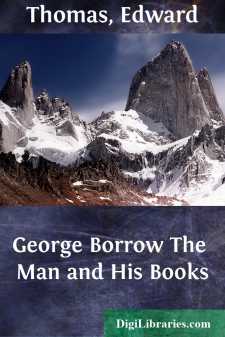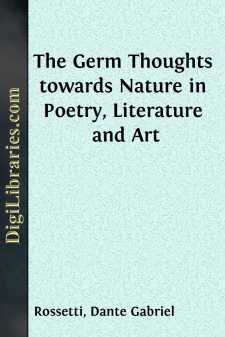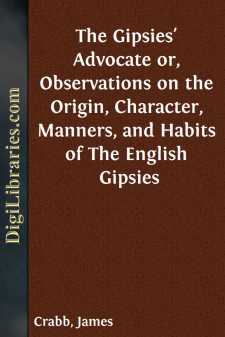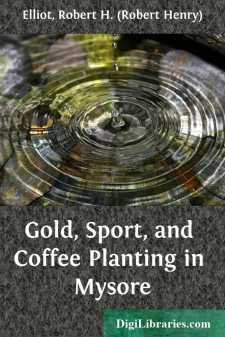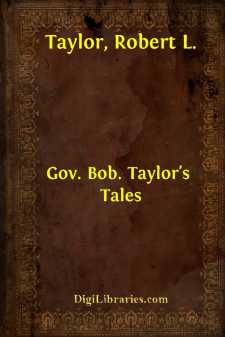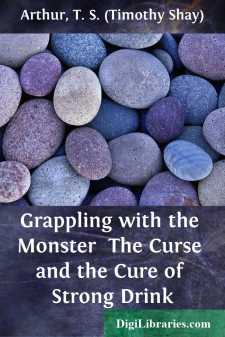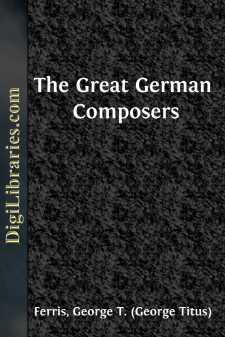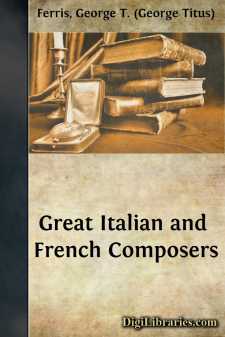Non-Classifiable
- Non-Classifiable 1768
Non-Classifiable Books
Sort by:
by:
Edward Thomas
CHAPTER I—BORROW’S AUTOBIOGRAPHY The subject of this book was a man who was continually writing about himself, whether openly or in disguise. He was by nature inclined to thinking about himself and when he came to write he naturally wrote about himself; and his inclination was fortified by the obvious impression made upon other men by himself and by his writings. He has been dead thirty years;...
more...
INTRODUCTION. Of late years it has been my fate or my whim to write a good deal about the early days of the Præraphaelite movement, the members of the Præraphaelite Brotherhood, and especially my brother Dante Gabriel Rossetti, and my sister Christina Georgina Rossetti. I am now invited to write something further on the subject, with immediate reference to the Præraphaelite magazine “The Germ,”...
more...
by:
James Crabb
PREFACE. The Author of the following pages has been urged by numerous friends, and more particularly by his own conscience, to present to the Christian Public a brief account of the people called Gipsies, now wandering in Britain. This, to many readers, may appear inexpedient; as Grellman and Hoyland have written largely on this neglected part of the human family. But it should be recollected, that...
more...
by:
Maisie Ward
INTRODUCTION Chiefly Concerning Sources THE MATERIAL FOR this book falls roughly into two parts: spoken and written. Gilbert Chesterton was not an old man when he died and many of his friends and contemporaries have told me incidents and recalled sayings right back to his early boyhood. This part of the material has been unusually rich and copious so that I could get a clearer picture of the boy and...
more...
A Word to the Wise We train for basket-ball, golf, tennis or for whatever sport we have the most liking. Is there any reason why we should not use the same intelligence in the approach to our general school life? Is there any reason why we should make an obstacle race, however good and amusing exercise that may be, out of all our school life? We don't expect to win a game with a sprained wrist or...
more...
CHAPTER I. INTRODUCTORY.—PROGRESS IN MYSORE. As I now turn my thoughts back to the year 1855, when, being then in my eighteenth year, I sailed for India to seek my fortunes in the jungles of Mysore, it is difficult to believe that the journey is still the same, or that India is still the same country on the shores of which I landed so long ago. But after all, as a matter of fact, the journey is,...
more...
by:
Robert L. Taylor
"THE FIDDLE AND THE BOW." I heard a great master play on the wondrous violin; his bow quivered like the wing of a bird; in every quiver there was a melody, and every melody breathed a thought in language sweeter than was ever uttered by human tongue. I was conjured, I was mesmerized by his music. I thought I fell asleep under its power, and was rapt into the realm of visions and dreams. The...
more...
INTRODUCTION In preparing this, his latest volume, the author found himself embarrassed from the beginning, because of the large amount of material which came into his hands, and the consequent difficulty of selection and condensation. There is not a chapter which might not have been extended to twice its present length, nor a fact stated, or argument used, which might not have been supplemented by...
more...
BACH. I. The growth and development of German music are eminently noteworthy facts in the history of the fine arts. In little more than a century and a half it reached its present high and brilliant place, its progress being so consecutive and regular that the composers who illustrated its well-defined epochs might fairly have linked hands in one connected series. To Johann Sebastian Bach must be...
more...
PALESTRINA.I.The Netherlands share other glories than that of having nursed the most indomitable spirit of liberty known to mediteval Europe. The fine as well as the industrial arts found among this remarkable people, distinguished by Erasmus as possessed of the patientia laboris, an eager and passionate culture. The early contributions of the Low Countries to the growth of the pictorial art are well...
more...


